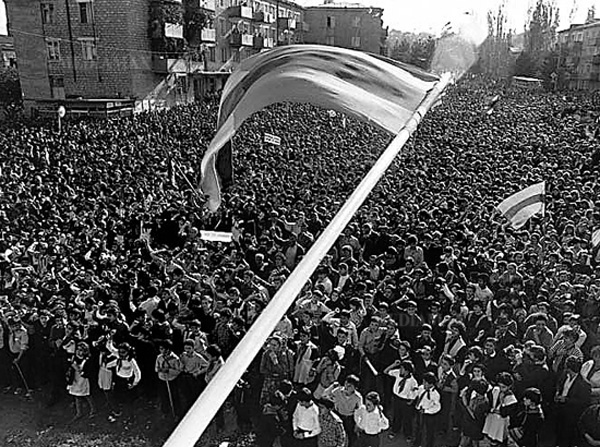I wrote several articles dedicated to the 30th anniversary of the Karabakh Movement, and as today is “the day” I would like to summarize the topic. Let me start from afar, from the Great French Revolution. The revolutionaries encouraged robbery and looting, they beheaded the king and all the guilty or innocent nobles, who came into their way, the the queen, who perhaps was “also torturing the poor people”, then they started to behead each other. After several years of this bloody process finally it was George Danton’s turn, who was not an angel either, but sometimes was trying to act rationally.
So, when he was executed, on March 19, 1794, in his last speech in Convent, apart from denying the absurd accusations, he also said, that the important thing is that the old times will never be back again, that people will no longer agree with the situation when the class affiliation determines the difference in rights.
I want to say that there are human, non-angelic manifestations of the revolutions and their participants, and there is the historical significance of those events. I think, the significance of the Karabakh Movement that started 30 years ago can be described in three words: overcoming of national complexes. As you can guess, this is about overcoming the complex of being beaten, broken, of being a sufferer. This generation, which was the core of the Movement, was not only the grandchildren of the 1915 genocide, but also the winners of 1945, people who received normal education and lived a relatively prosperous life for decades.
The main ideology of the movement was formulated in Rafael Ishkhanyan’s article “Exclusion of the Third Force”, and the meaning was quite clear: to believe in our own strength, and avoid the traditional “orientation trap”. What we have been able to create and acquire in those 30 years has been due to following this line. Failures are conditioned by the deviation from that line.
Usually people do not want to assess the Movement objectively, asking, “and why don’t you say what happened after 1990?”. But that is a completely different story: a lot has happened after the French Revolution as well.
Aram ABRAHAMYAN




















































